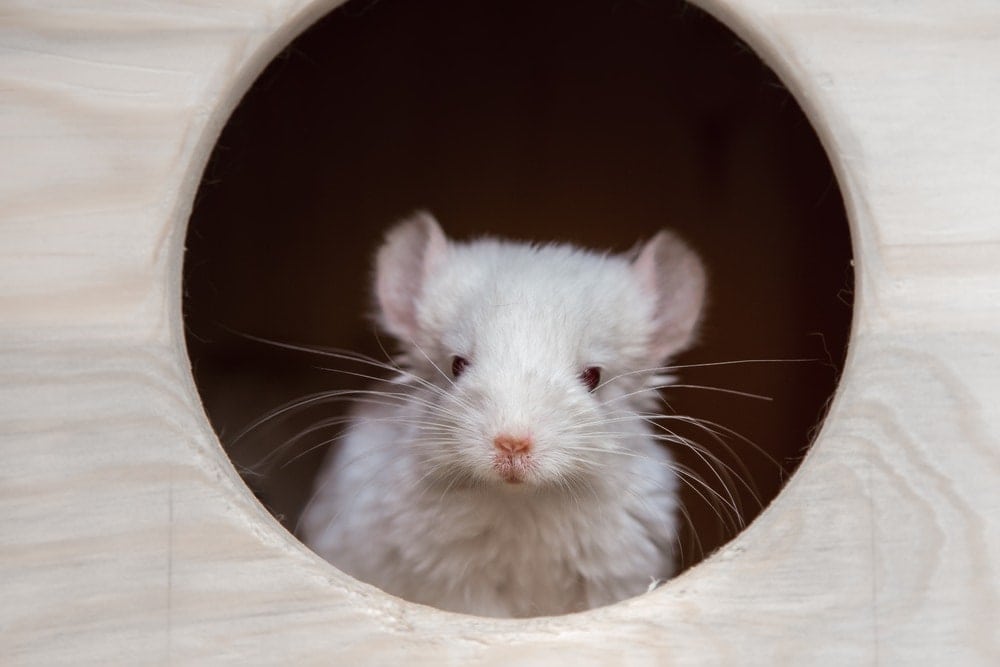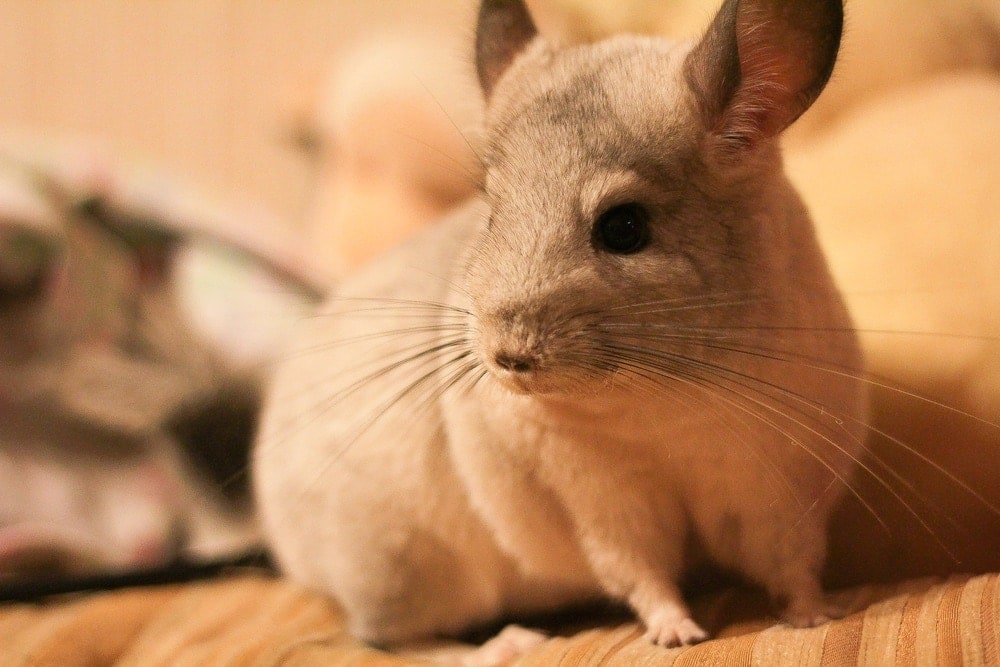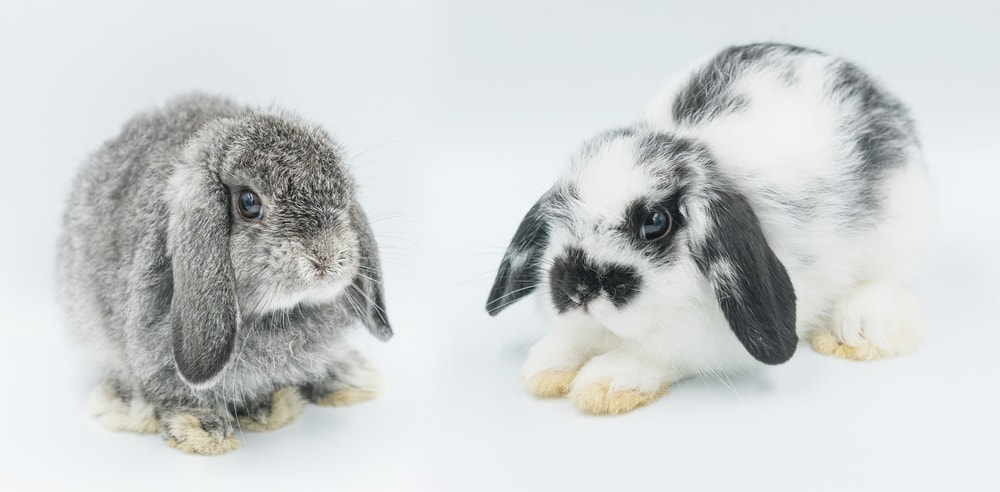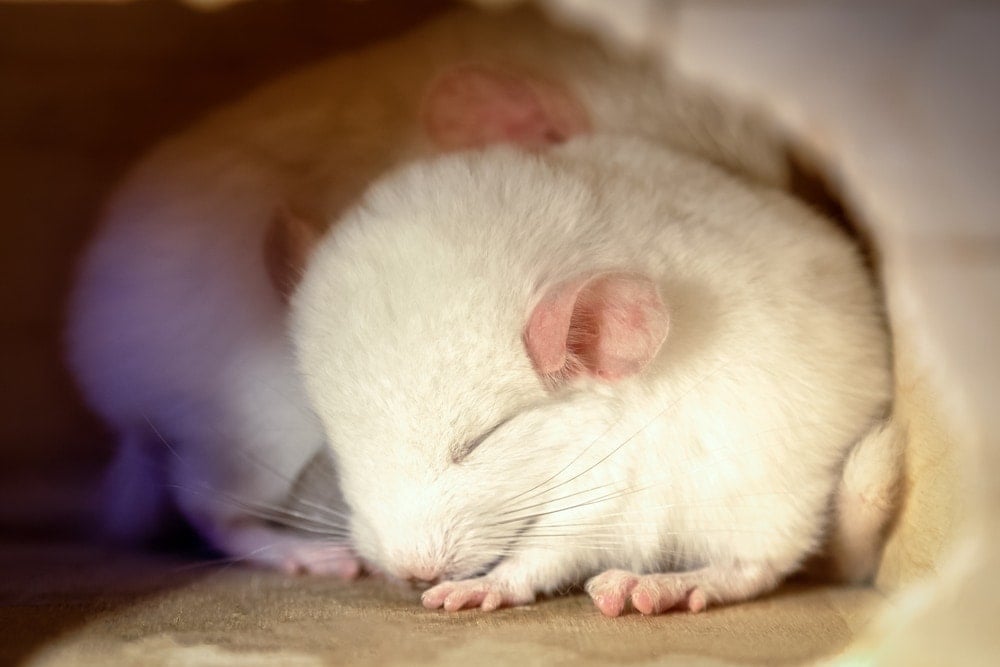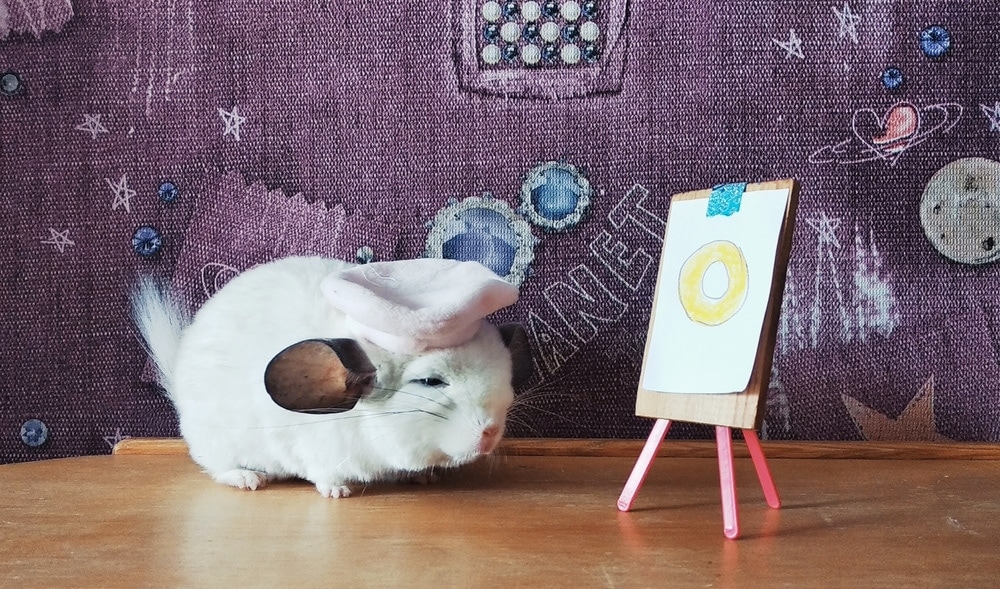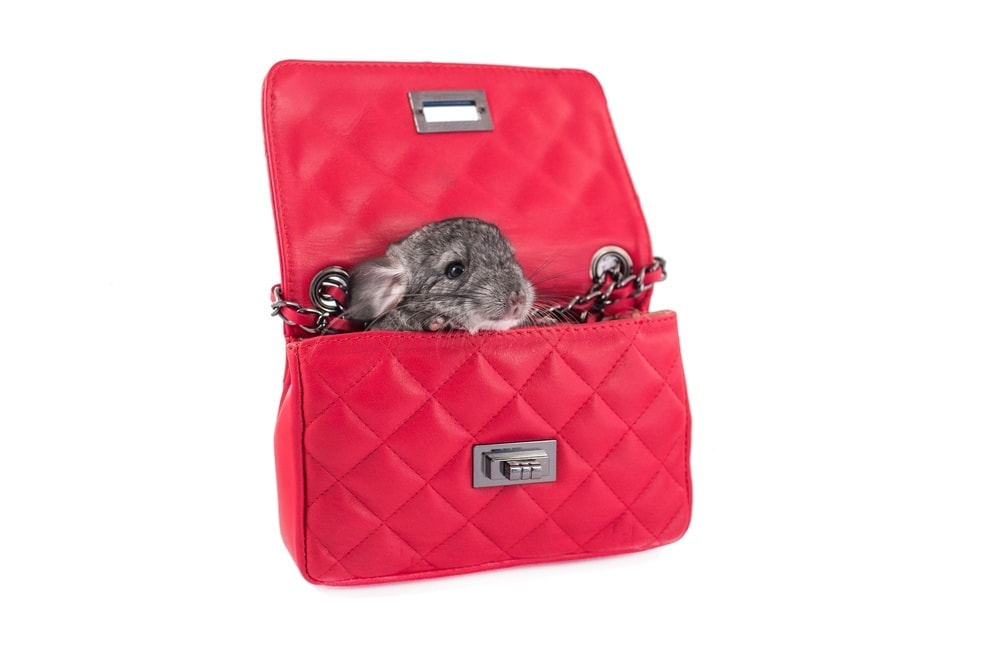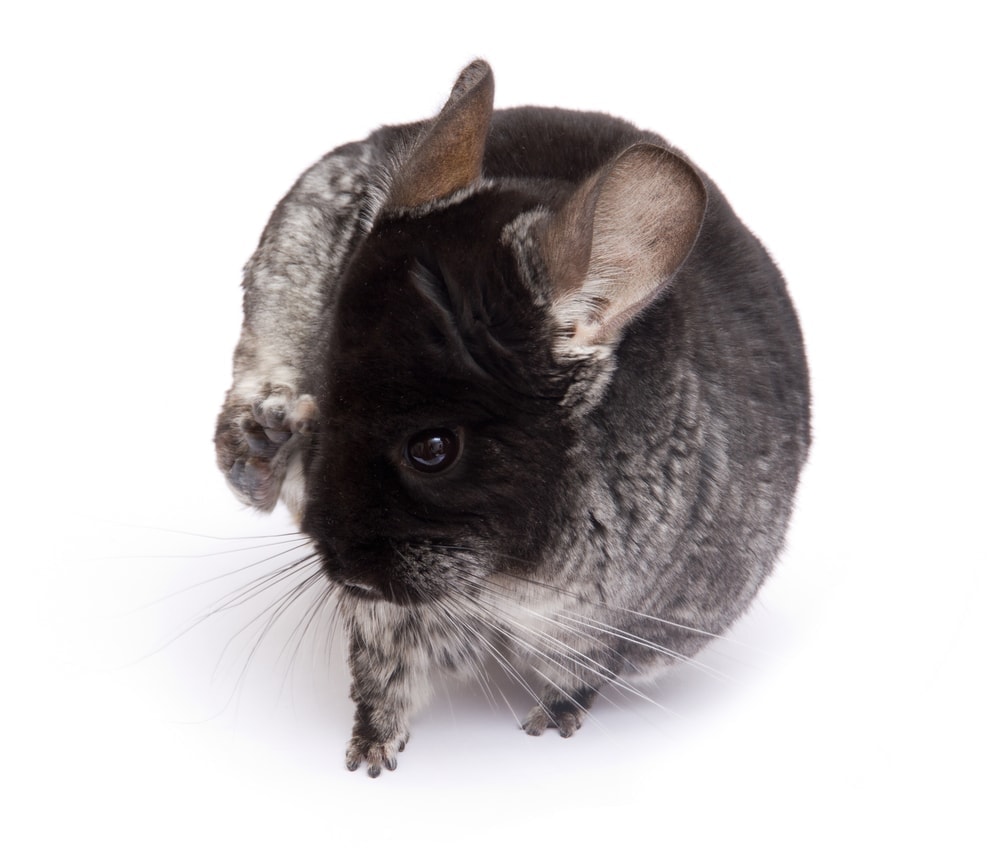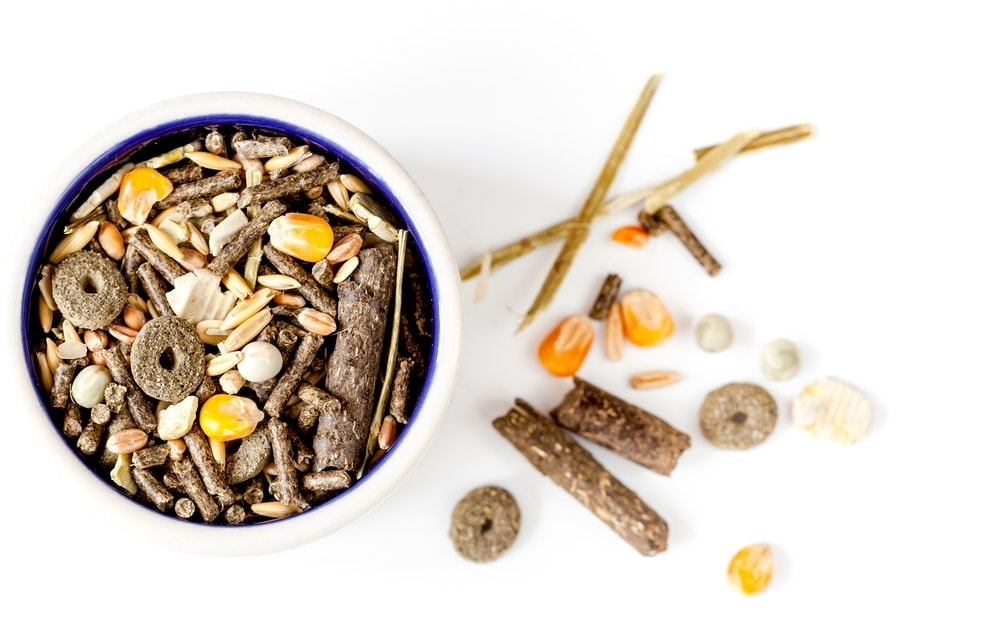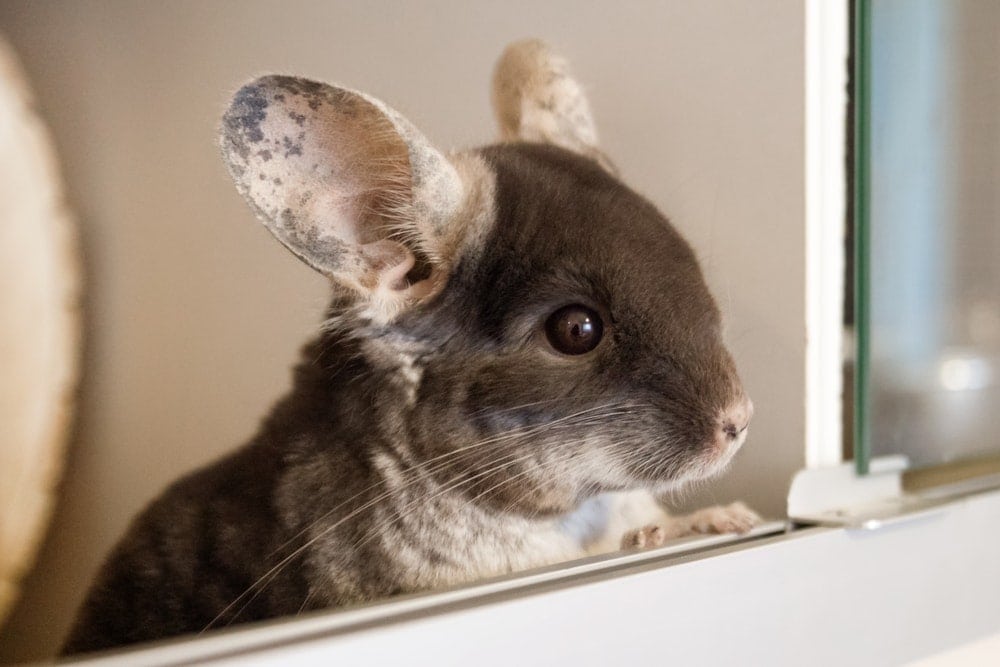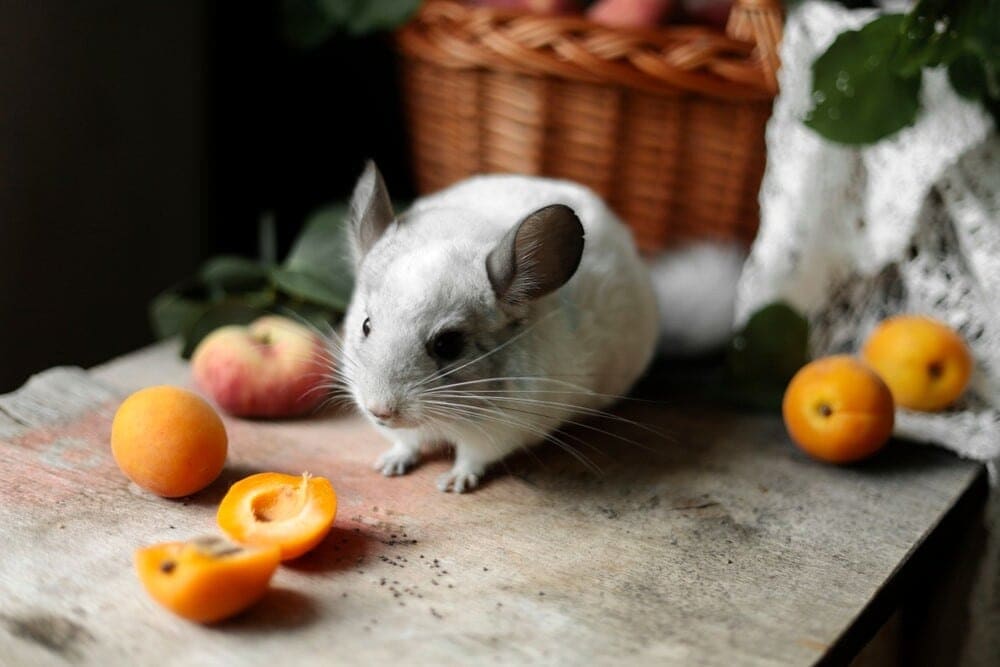It is important that you know how much your chinchilla is supposed to weigh. This is a good indication of your pet’s overall health.
We will go over some crucial tips and advice that will help you to keep them healthy so they live as long as possible.
Average Chinchilla Weight
Most chinchillas weigh about a pound once they are fully matured, which usually happens by the time they are one year old. The maximum weight for these animals is three and a half pounds, so you’ll need to keep that in mind. The Long-Tailed Chinchilla has an average weight of 1.1 pounds, whereas the Short-Tailed Chinchilla has a maximum weight of 3.1 pounds.
How to Weigh Your Chinchilla
You can get your chinchilla weighed when you take it to the veterinarian, but you can always do it at home. This can be a bit tricky, so there are a few things you’ll need to know before getting started.
First you will need to get a scale. You should be able to use a scale that is meant for measuring food. Most of these scales have a digital display that clearly shows the total weight of the object. You can adjust the settings to whichever unit of measurement you want.
Hold your chinchilla firmly with both hands so it doesn’t run away, placing it gently on the scale. Some of these animals are better than others when it comes to sitting still. You don’t want to press down while holding your pet on the scale, as this will almost certainly result in an accurate number.
How Often Should I Weigh my Chinchilla?
It is a good idea to weigh your chinchilla at least once every couple of weeks. This will give you a better idea as to whether or not your pet is becoming overweight.
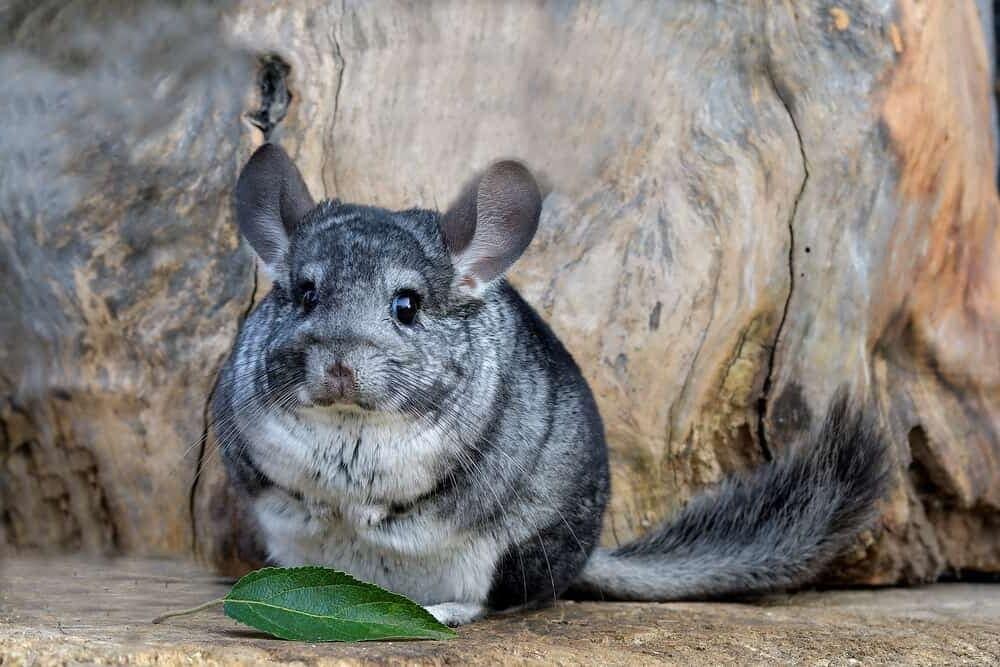
Dangers of an Overweight Chinchilla
There are lots of health complications that can arise with your chinchilla as it becomes increasingly overweight. This includes mobility issues, which make it even harder for them to maintain a healthy weight. Your pet is more likely to develop potentially life-threatening infections when it is severely overweight. This is due to the fact that their immune system will become increasingly weaker as they put on extra pounds.
Effective Ways to Maintain Your Chinchilla’s Weight
It is crucial that do everything possible to help your chinchilla maintain a normal weight so that it stays healthy. As this animal’s owner, it is your responsibility to do all of these things.
1. Set a Limit on Treats
Treats should only make up about ten percent of your chinchilla’s total daily diet. It can be easy to get carried away with this, but you need to set a limit. This is one of the most common reasons for obesity among these animals. The treats that you do give your pet should be healthy and nutritious. Avoid giving them anything with processed sugar or lots of fat.
2. Make Sure They Get Plenty of Exercise
Regular exercise is crucial for all animals, including chinchillas. It is therefore important that you make a point of allowing your pet to roam around each day. If they aren’t getting enough exercise, they will quickly pack on excess weight.
You should also provide your chinchilla with means of exercising in their enclosure. This includes an exercise saucer, which is cheap and highly beneficial to your pet’s overall health. A lack of exercise can also take a serious toll on your pet’s mental health. When these animals don’t enough stimulation, they can become depressed.
3. Look for Signs of Digestive Issues
If your chinchilla is quickly gaining weight, it could be due to a serious digestive issue that needs to be addressed right away. It is possible that your pet has something called “gastrointestinal stasis”. This condition prevents food in the animal’s stomach from passing through its intestinal tract in a normal way. This process is much slower than usual, which can lead to rapid weight gain.
It is crucial that you learn about some of the signs of this condition so that you can easily recognize it. You will most likely notice your chinchilla not eating any hay, instead begging for treats all the time. It’s also possible that you will notice bloating of its stomach, which is a result of excess food buildup in the gut.
When to See a Veterinarian
When you aren’t sure whether or not your chinchilla is currently at a healthy weight, you’ll want to get them to the vet right away. Your veterinarian will be able to weigh your pet and tell you if it needs to lose weight. They might also want to run some tests if they notice signs of a digestive disorder. The sooner you do this, the easier it will be to keep your pet healthy.
If it seems like your chinchilla weighs less than it should, you should get it to the vet. Being underweight can be just as detrimental to your pet’s health as being overweight. There are a number of serious conditions that can cause this, so you don’t want to take any chances.
Conclusion
- Long-tailed chinchillas have an average weight of about 1.1 pounds, whereas short-tailed chinchillas weigh closer to three pounds when fully matured.
- You should have a scale at home to weigh your chinchilla every couple of weeks or so. You can use a scale that is designed for weighing food.
- When you go to weigh your chinchilla, hold them firmly without pressing down on the scale.
- There are lots of potential health problems that can come with an obese chinchilla, including an increased risk of infection.
- Make sure that you limit the number of treats you give your pet. Treats should only make up ten percent of their diet.
- It is also crucial that they get a good amount of exercise on a regular basis, both inside and outside of their enclosure.
- A healthy, balanced diet is essential to maintaining your pet’s overall health.
- If your chinchilla is rapidly gaining weight, it could have a digestive disorder.
- If you notice any signs of illness with your chinchilla, you should get them to the vet right away.
